#christopher summers
Text
You think anyone ever told Christopher Summers that one of his sons spent his childhood being abused by two telepaths trying to mold him into their personal weapon before Charles Xavier showed up and succeeded?
85 notes
·
View notes
Text
Wait -
I haven't seen anything else with Vulcan/Gabriel Summers on YouTube, so does that mean his appearance was SOLELY FOR AN EASTER EGG?!?!
#Don't know if I should be mad or relieved#I mean I love my Summers family but Gabriel got done dirty#No offense to those who love him I just wish he'd been the ray of sunshine in a family of chaotic dysfunction#gabriel summers#vulcan#x men#scott summers#x men 97#christopher summers#corsair
13 notes
·
View notes
Photo
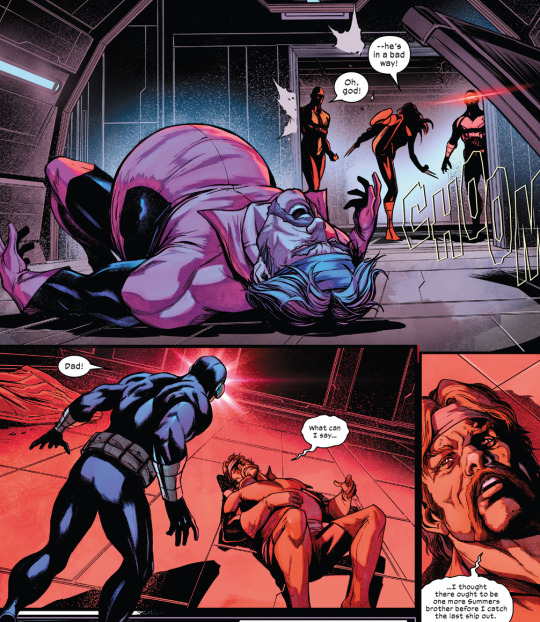
X-Men #19 - "Lord of the Brood" (2023)
written by Gerry Duggan
art by Stefano Caselli & Federico Blee
#cyclops#corsair#scott summers#christopher summers#marvel#wednesday spoilers#spoilers#comic spoilers
108 notes
·
View notes
Text

[Uncanny X-Men 391]
You see why I gave these two 12k just to angst dysfunctionally at each other.
For context: Scott recently came back from being missing and presumed dead for kind of a while. Alex blew up before that. It's just these two, separated by aliens for most of Scott's life. It's a miracle Scott was able to get Corsair to Earth to begin with, considering his avoidance strategy to parenting.
18 notes
·
View notes
Text

Mr and Mrs X (2018) #5
14 notes
·
View notes
Text

Avengers (1963) #351
#carol danvers#Binary: Carol Danvers#binary#corsair#captain corsair#christopher summers#black widow#starjammers#avengers#marvel comics#marvel comic art#marvel comic panel#marvel panel#marvel panels#marvel art#comic art#comics#comic#comic books#comic book#comic book art
14 notes
·
View notes
Text
When your dad takes you out for a drive lesson, then decides to show one of his cool drifting tricks
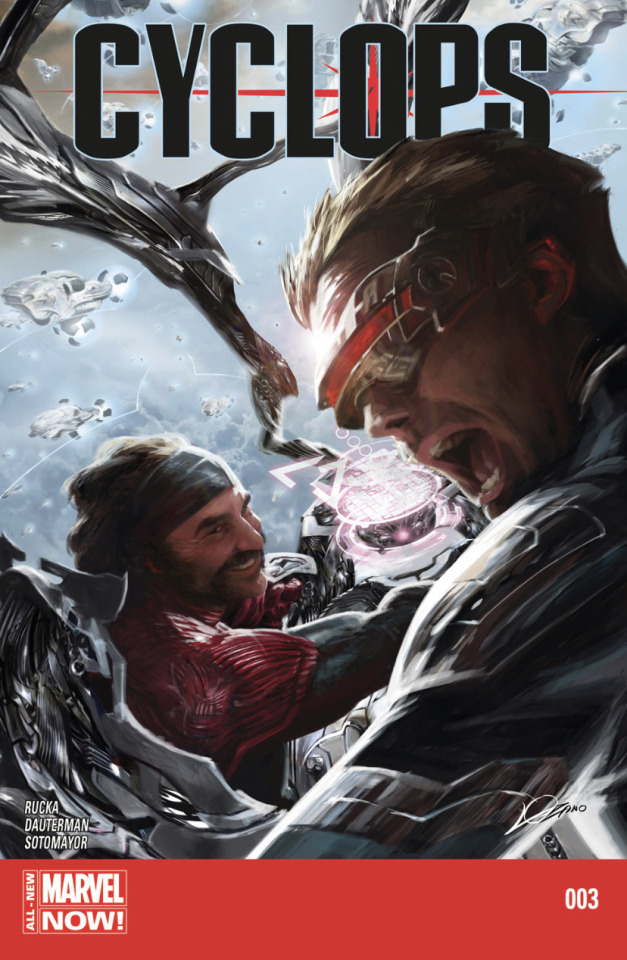
24 notes
·
View notes
Text
instagram
Fall of the House of X #1 variant cover by Mahmud Asrar
#comic book cover art#variant cover#marvel comics#fall of the house of x#rachel summers#christopher summers#nathaniel summers#alex summers#gabriel summers#scott summers#jean grey#james howlett#mahmud asrar#Instagram
11 notes
·
View notes
Text
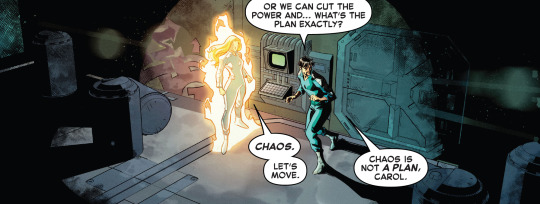
Captain Marvel Annual #1 (2022)
Torunn Grønbekk
Carlos Gómez
11 notes
·
View notes
Text

X-Men #107 (Claremont/Cockrum, Oct 1977). Dave Cockrum’s last issue before getting replaced by John Byrne is a dizzying parade of cosmic characters. The Starjammers arrive to help the X-Men rescue Lilandra.
16 notes
·
View notes
Text
The Summers fam and their posse.
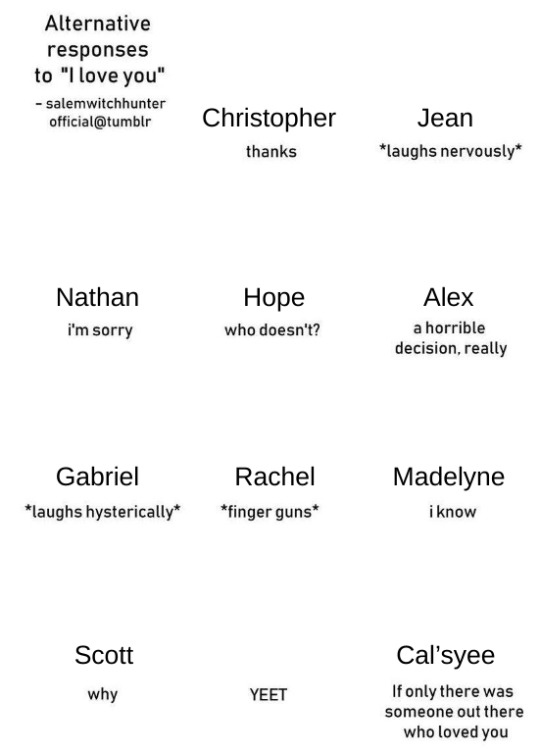
#christopher summers#corsair#jean grey#nathan summers#cable#hope summers#alex summers#havok#gabriel summers#vulcan#rachel summers#madelyne pryor#goblin queen#scott summers#cyclops#cal'syee neramani#deathbird
29 notes
·
View notes
Text
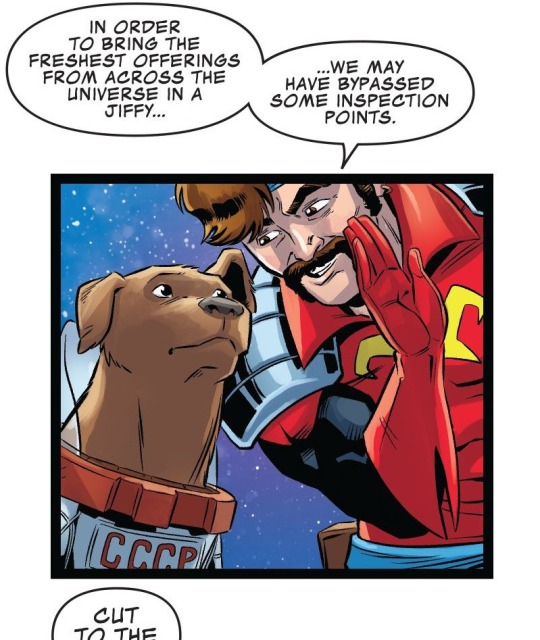
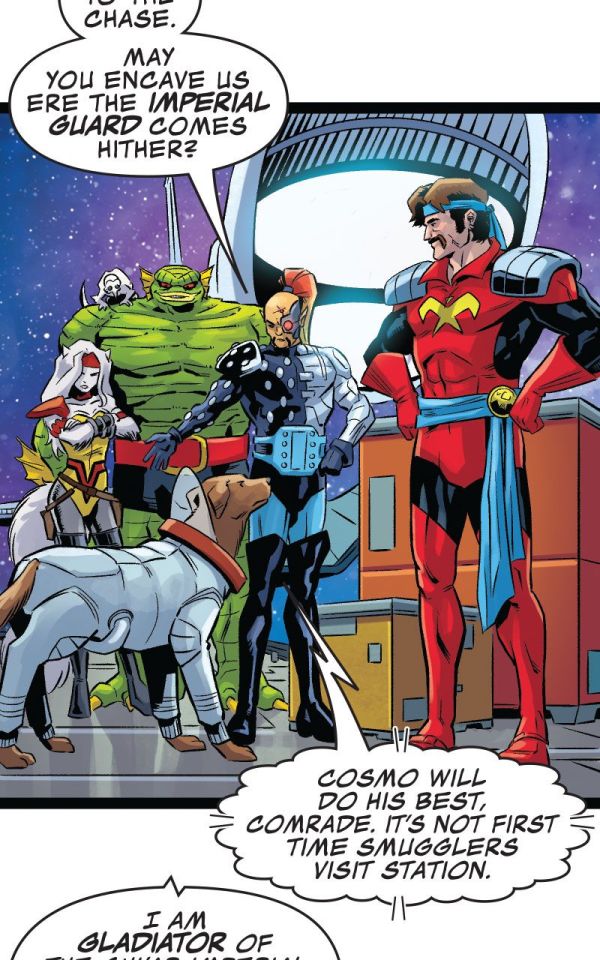
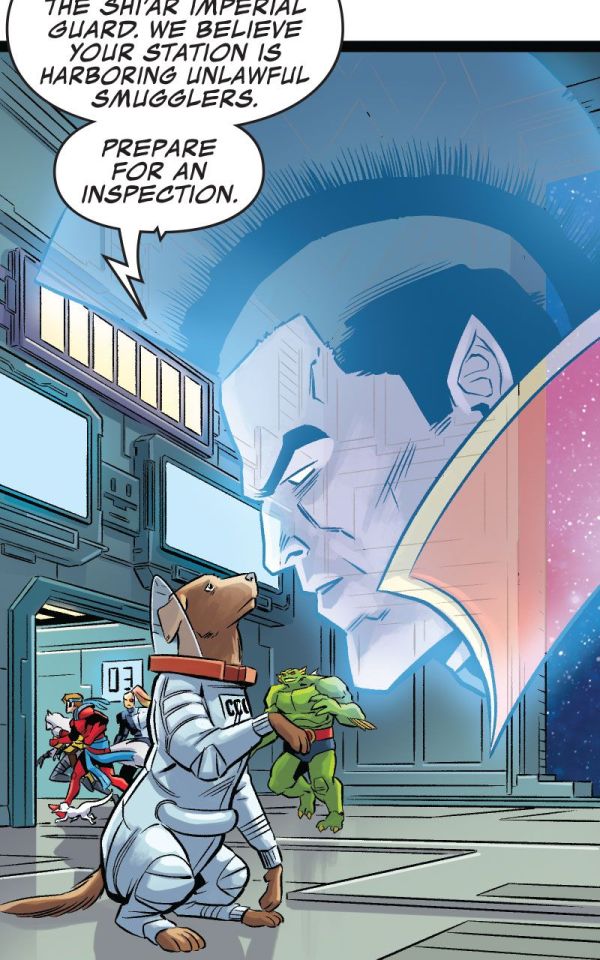
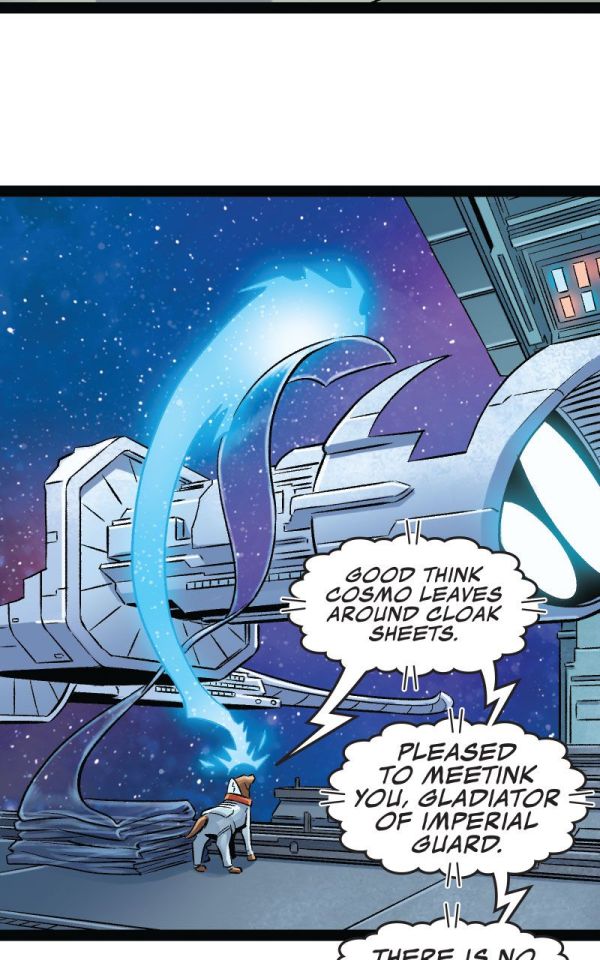
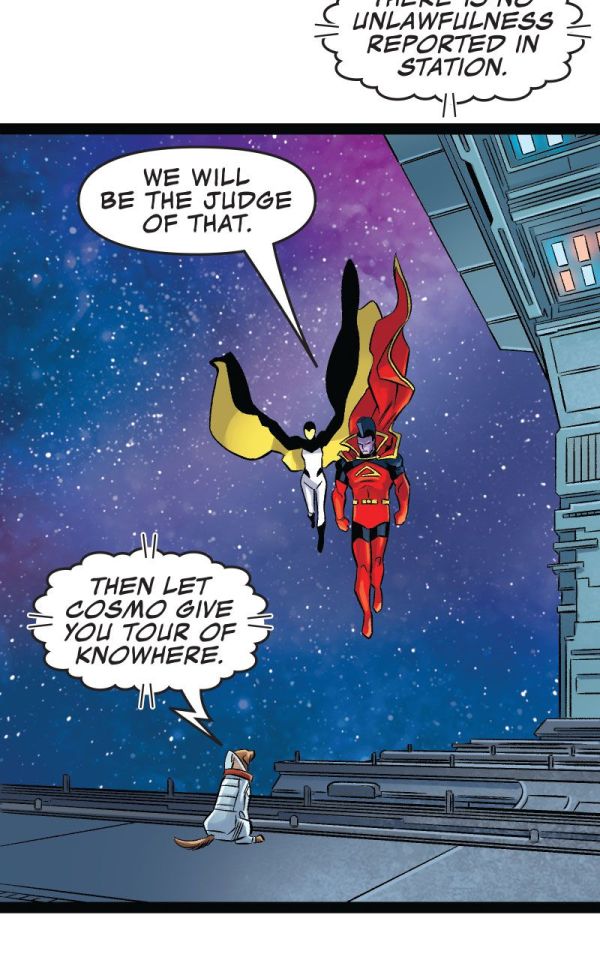
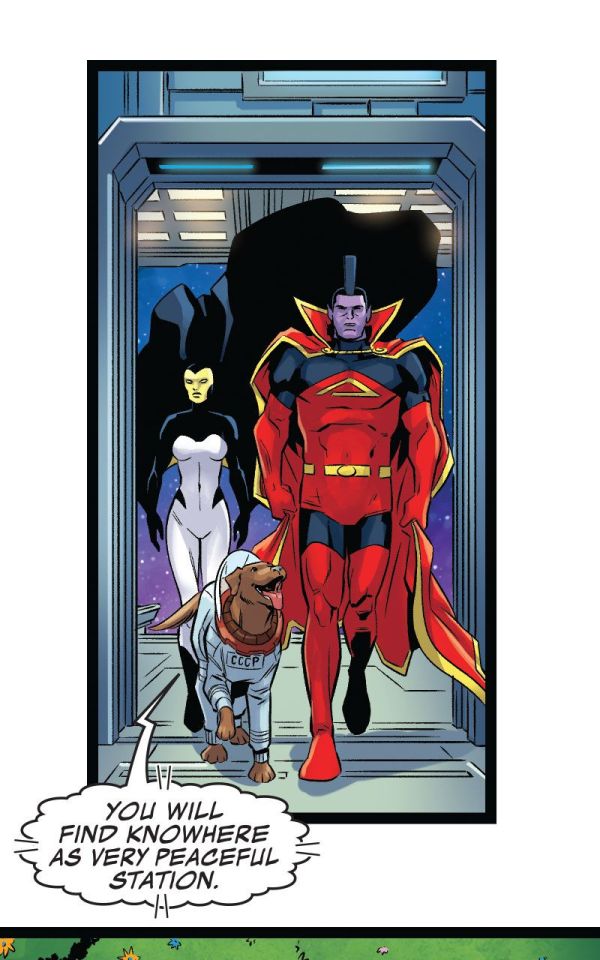






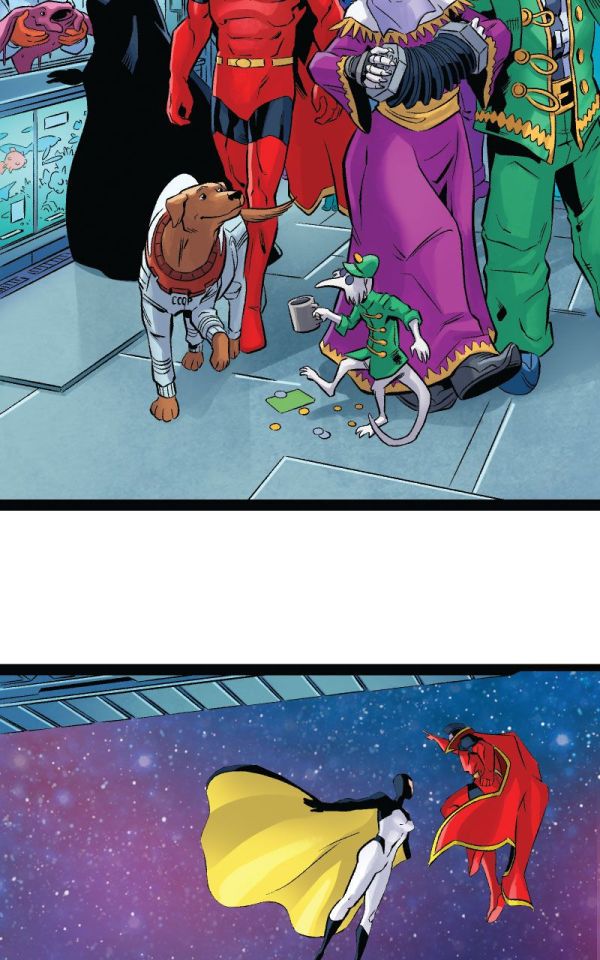
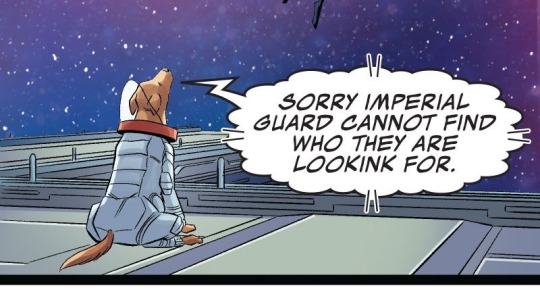
In order to protect the Starjammers who are wanted as fugitives to the Shi'Ar Empire, Cosmo tries to fool the two patrolling Shi'Ar Imperial Guards - Gladiator and Manta during the inspection tour.
Cosmo the Spacedog Infinity Comic #5
#Cosmo the Spacedog#Cosmo#cosmo the dog#cosmo the space dog#Knowhere#Corsair#Christopher Summers#Ch'od#Hepzibah#Raza Longknife#Starjammers#Gladiator#Kallark#Manta#Shi'ar Imperial Guard#Groot#Mantis#Drax#Arthur Douglas#Guardians of the Galaxy#infinity comic#marvel#infinity comics#digital comic#long post
17 notes
·
View notes
Note
15 for the xmen asks!
Which X-Parent is the worst parent?
I mean Charles is an easy answer; everything I hear about his treatment of David Haller is increasingly upsetting to me. And like, also, Moira also sucks at being a mom in a way that was personally extremely disappointing to me, as Tumblr's Single Deadly Genesis Team Fan (literally Darwin and Gabriel have intense mommy issues! Moira! Why do you have to be like this!).
Logan also sucks at raising his own kids but also he's kind of narratively prevented from doing so, since Laura was raised by Weapon X and Akihiro wound up, like, some kind of assassin trained by a guy named Romulus (look, man, I don't know anything about Akihiro's backstory. All I know about him pre-X-Factor (2020) is that he fucked Johnny Storm once and coated his wrist claws with Muramasa blade metal to try and kill Logan). He seems to do okay with Gabby, but Gabby is precious and perfect so I'm not surprised by that.
And of course there's Chris. I genuinely think this man has the most extreme version of the Summers Flight Instinct (where Summers men react to trauma and anxiety by fucking off to space, the Alaskan wilderness, or the desert, leaving family and lovers in the dust), and also I kind of think Scott, Alex, and Gabriel were all accidental conceptions because Katherine fucked up her pill schedule. We're all extremely lucky that either Hepzibah can't have Chris's babies, or she has the most rock solid birth control ever, basically.
So ultimately my vote's for Charles, but like, he faced some stiff competition.
#charles xavier#moira kinross#moira mactaggert#moira x#logan howlett#MISTER wolverine#christopher summers#asks
12 notes
·
View notes
Photo


X-Men #18 - "Wounded Wolves" (2023)
written by Gerry Duggan
art by C.F. Villa & Matt Milla
130 notes
·
View notes
Text
I was thinking again about the similarities between what I was doing with Iconoclast (a Stranger Things fic in my please don't wake me series) and Proxemics (a standalone X-Men fic).
Cut for absurd length (naturally) and non-graphic discussion of child physical abuse/CSA and neglect.
I took a very loose artistic interpretation of the word, but I chose "iconoclast" because the story is about the destruction of false beliefs and images that scaffold our worldview, which is ultimately what happens, in a very metaphorical way: the internal structures on which Joyce has come to rely are shattered and she's forced to confront truths that break with what she thought she knew. She has to reframe her whole way of looking at things. "Proxemics" has to do with the spatial distance zones through which we communicate affinity, closeness, and comfort within cultural contexts (and to some extent how we use these zones to communicate other information). It's the study of these zones between people, like how close we allow them to get (on a very literal physical level) and in which social contexts. I used that more metaphorically here because that's basically the whole ballgame for the story: who is permitted to know what information and when and what that means, who is held at arm's length and what happens when these boundaries are transgressed or when people are allowed past them.
Iconoclast is very much focused on Joyce and tracing the path she took, from the decisions she made to the forces that were pushing her there; it's about her relationship with herself and with her son. It's a very narrow focus because it's about this family. Proxemics takes a much broader view because Scott's role is much bigger. He's responsible for many people and extends himself accordingly; whereas Jonathan's family is his world, and Joyce is very much the same. So Proxemics is about Scott's role in his world and the understanding his community has of him, not his familial relationships specifically, but his relationship with Corsair is important enough (in the sense that it's a big, gaping wound) that it constitutes the entirety of chapter two. There's more verbiage breaking down that relationship than all the others combined.
Proxemics has to be the most self-indulgent thing I've ever written. It's a bunch of conversations and realizations that I wanted to see and things I wanted acknowledged slapped into one story and loosely tied together. And I committed really hard to doing it in a way that felt true to the characters because it wouldn't have been satisfying for me to get these people to give a shit about what Scott had been through and understand him a little better if they'd felt like strangers or if I'd completely glossed over the roots of their enmity. Scott was surrounded by people who were extremely critical of him, at best, and extremely angry with and dismissive of him at worst. Even his own father had given up on him by that point. (I committed so hard to taking these characters at face value that a couple of people thought the story was anti-Scott, lol. They wondered why it was so mean to him, when in actuality the alternate title of this fic might as well be Reasons You Should Love Scott and Cut Him Some Slack: An Itemized List. If ever I've written a love letter to a single character, this is the one.)
And that's where I see a lot of echoes of Proxemics in Iconoclast. They're both about how trauma and difficult circumstances can push us farther from or closer to each other and how we can have the best intentions and still fall short. Corsair wrote off his kids because he couldn't deal with his trauma, then he and Scott reunited and had just this incredibly strange and unsatisfying relationship for years. Corsair really never came through for Scott, and Scott just had to accept it and live with that. Joyce's deal is very different, but canon shows her in a very difficult situation (and I think it's likely that she's just been through a lot of shit we don't see, so I creatively extrapolated a bit in a way that was particularly thematically resonant with the issues I gave Jonathan in pdwm). Corsair is a pretty shitty parent, for the most part, who makes a lot of mistakes and doesn't make much of an effort most of the time until he decides he'd like to give this parenting thing a try after all; Joyce is by no means a shitty parent, but she makes a lot of mistakes, some of which are more forgivable than others but none of which happen because she doesn't care or try. Corsair is a dude, though, and while I doubt anyone is out there claiming that he's not a terrible father, it's interesting (if a giant bummer) to consider how his story would play out (and be received) if he were a woman and his parenting (or lack thereof) were judged according to the harsh standards against which mothers are measured. His abandonment would be read very differently. On the flip side, Joyce's status as a mother often consumes her character, and she's not given room for that motherhood to be complex, flawed, and still ultimately loving and well-meaning. So that's just something to consider.
Then there are their kids.
So Scott and Jonathan are two characters whose circumstances make them extremely vulnerable to abuse and exploitation and who have suffered canonical abuse and neglect (in Scott's case, pretty extreme abuse and exploitation). In Jonathan's case, I think some form of CSA is likely but not an absolute; in Scott's case, I'm absolutely certain that it occurred. They're both socially isolated and rejected ("freaks" regarded with suspicion and contempt for reasons outside their control). They're also both very closed-off and reserved (Scott significantly more so than Jonathan, but still). They're heavily burdened with outsized responsibilities not appropriate to their developmental levels. Their identity development has been subsumed by these roles and they measure themselves by their utility to others.
pdwm is, at its heart, a story about the complex dynamics of a dysfunctional but loving family and how that love can shape identities and decisions in ways that can be painful or unhealthy, but that can also be healing and strengthening. Responding to the fluidity of those things or recognizing our mistakes and figuring out how to adapt when something isn't working, even when we thought it was. It's about the double-edged sword of loyalty and the meaning of autonomy and the layers of truth that we selectively divulge and how (or the truths that we ignore--what we hide and why and how we frame it all). I created a specific scenario to highlight some of these things (the rape in the first installment) and that theme runs through many of the other stories in the series, but a lot of the issues at play are just what we see in canon (the parentification and neglect, Lonnie, Joyce's distance, Jonathan's secrecy and independence) or extensions of them. There's a strong forward momentum because it's about how you can dust yourself off and keep going and whether or not that serves you in the long-run and what other choices do you have, anyway? But ultimately it's about healing. Things aren't better by the end of that story, but they are each now in a position where they can get better because they're finally being honest and actually seeing each other more fully, if not communicating particularly well. The door has been opened. It's a beginning, in a way.
Proxemics is not about healing. It's about scar tissue. Scar tissue so thick and so deep that it shapes the way you move and the choices available to you--so deep that some of it's just numb. Scott is in a place where he's accepted these things because he never had a choice. His options were cope or die (and in doing so, letting a bunch of other people die). And he's got a lifetime of people telling him that he doesn't matter and neither do his feelings and if terrible things happen to him, tough--either ignore it and move on or use it to make yourself stronger, and isn't it better that it be you than someone defenseless? Shouldn't you be that shield? He can never get off this ride. That's the tragedy of it all. Like, it's nice that people have more compassion and understanding for him by the end of that story, but it doesn't really help him in any particularly meaningful way; it's really something that happens around him more than something that affects him.
But they're both very maligned and poorly-understood characters, Scott both in-universe and in fandom at large and Jonathan more so in fandom at large. Though I'd argue that there's an element of in-universe misunderstanding even for Jonathan.
So the crux of the matter is this:
Joyce and Corsair just go about their lives not really seeing what their kids have been through because, in many ways, they don't want to see it. Not completely--there are definitely ways in which their circumstances prevent them from seeing it. But to some extent, yeah, it's a survival mechanism. Corsair gets the time-displaced Scott to have his do-over dad experience and Joyce (though grieving and traumatized) finally finds herself in a position where she doesn't need to rely on Jonathan quite so much and she and her children are in a safe living situation. They both just want to reap the benefits of this and quietly move past the painful stuff as though it never happened. They're living in the moment and looking toward the future. It's understandable, but not really feasible or fair.
Enter Proxemics and Iconoclast. Because I wanted them to see this stuff, and I wanted them to reckon with the reality of it--what happened and why and the consequences and how to move forward with that understanding. They needed to see before they could get that future, even though Scott and Jonathan didn't particularly want to be seen. They didn't need graphic details for this, but just the shape of it was enough to accomplish these goals.
Joyce and Corsair are equally horrified and guilt-stricken to learn about what happened to their children. For Joyce, it all happened right under her nose; to some extent, she was actively manipulated and lied to, and in other ways she simply wasn't able to see it. For Corsair, he's left to live with having abandoned them and knowing that things would likely have been different if he'd been there to protect them (though it is a little more complicated than that). Scott was truly alone, certain that his family was dead even though it turns out they were out there somewhere after all, where Jonathan had his family but he felt incredibly alone and he effectively was. Joyce had no idea how alone and isolated he felt or why--we know this because she chastises him for not recognizing that he's not alone. So that was something else that she needed to come closer to understanding. Without truly comprehending that, there's just this massive, impermeable barrier between her and Jonathan.
Joyce tried her best in a terrible, difficult situation. Corsair arguably did not, but every decision he made was shaped by heaps of trauma, shame, and emotional immaturity. They're very different, on many levels. But ultimately both stories involve a traumatized parent who failed their child recognizing the suffering that followed. But it's not about guilt or shaming them for their parenting (or lack thereof). It's about the seeing--it's about the understanding.
Corsair and Joyce both recognize that terrible things have happened to their children--they don't want to see it, but it becomes undeniable and this knowledge haunts them. They both recognize that their right to push is limited, Corsair because he abandoned Scott (more than once) and Joyce because she hasn't been there for Jonathan and so they just don't have the kind of relationship where she feels entitled to push. Despite their similarities, she doesn't know him that well. But where Joyce eventually overcomes this and pushes quite hard (arguably more than is really fair--she oversteps in Iconoclast a bit), Corsair does not. He asks, Scott gives him a non-answer that says it all, and he backs off. He fixates on the possibilities, but he doesn't ask again, and he leaves it to Scott to decide whether to open up; when Scott does crack that door open, it's to talk about a different trauma entirely, but the one that's really bothering him at that point. Scott would have told him if he'd asked again--he makes this clear--but Corsair really feels both that he's forfeited the right to certain knowledge and that he still can't quite cope with knowing more than he does. Jonathan really only says anything because Joyce makes it clear that 1) she can't really believe his claims that nothing is wrong and that 2) she will spin out and make herself miserable wondering what that something is. Because a significant motivator for his secrecy is to protect her (though not all of it), this puts him in a position where he feels compelled to reassure her that it wasn't "worse" than it was. He shares a lot more than Scott does, but it's not particularly cathartic for him at the time.
Scott and Jonathan both feel very differently about their childhoods and their parents' roles in them. Scott does have a lot of anger toward Corsair, but he basically gave up on ever reaching any kind of resolution for any of it. He recognizes that that's all Corsair is capable of giving him and accepts that. Which is what makes All-New X-Men so fucking heartbreaking--it shows Corsair at a point where he's capable of being what Scott needed, but that means fuck-all to adult Scott, and in fact it's used to condemn adult Scott. And Corsair gets to have a nice vacation with his still very traumatized son while coasting on his laurels and never really having to face the consequences of his actions or be there for Scott in a truly meaningful way. The book really glosses over the immense horror of what Scott has suffered and Corsair's utter refusal to engage with any aspects of parenting beyond being the fun dad who breezes in occasionally after a lifetime of abandonment. Conversely, Jonathan isn't angry with Joyce. He may have some resentment or anger in canon, but I just think he has too much understanding of their circumstances to really be able to sustain any kind of genuine anger. He's angry with the society that failed them and the town that threw them away and then penalized them for not being able to rise above it; he's angry at Lonnie for a lot of things. But not with Joyce.
Anyway, I dunno, it's just sort of interesting to me how I essentially tackled the same thing twice. But they're very different in many ways.
#writing tag#scott summers#christopher summers#joyce byers#jonathan byers#stranger things#meta#x-men#director's commentary#very long post#long post#please don't wake me series#rape mention tw#child abuse mention tw
7 notes
·
View notes
Text
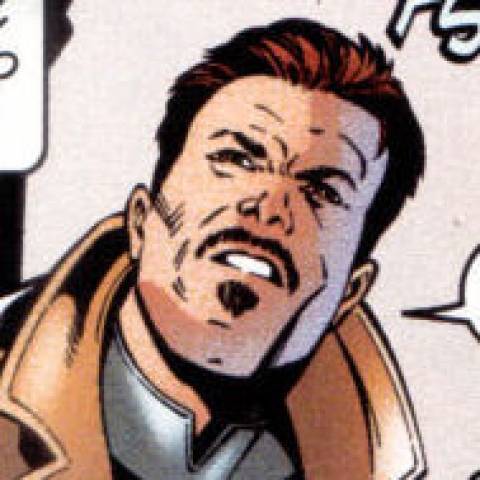
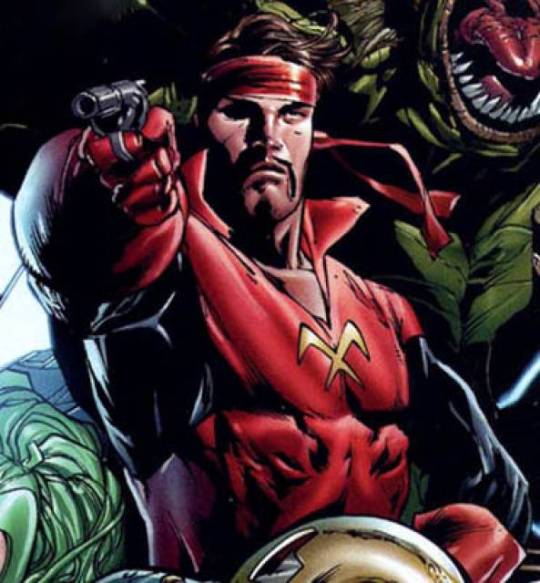
10 notes
·
View notes